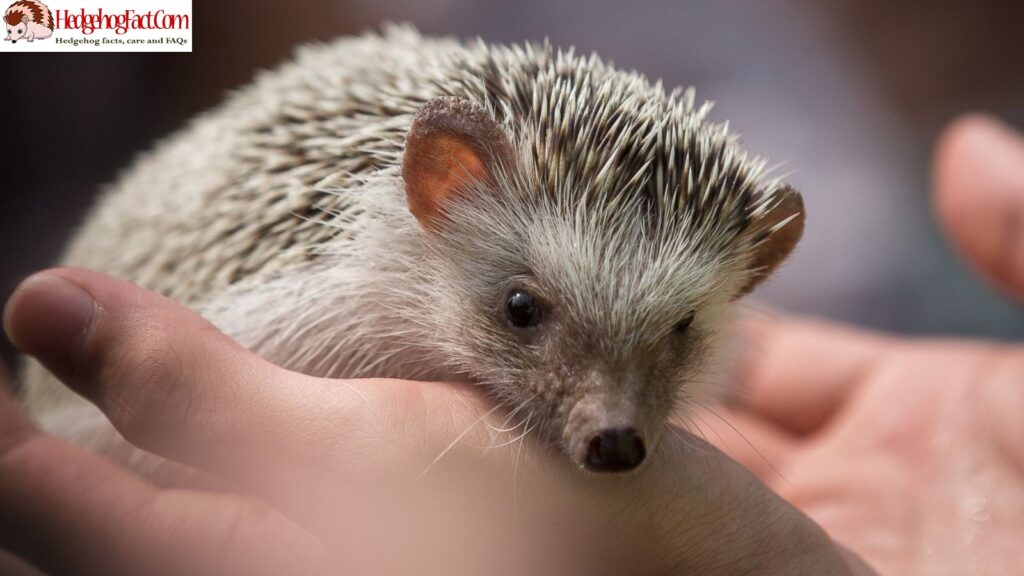If you’re looking for an exotic and low-maintenance pet, hedgehogs might be a good option for you. However, before bringing a hedgehog home, it’s essential to understand its care needs and whether they make good pet for your household. In this article, we will explore different aspects of hedgehog ownership, including cost, maintenance, handling, and health, to help you make an informed decision.
Cost of Hedgehog Ownership
The cost of owning a hedgehog can vary depending on where you live and where you purchase it. Generally, a hedgehog can cost anywhere between $100 and $300. It’s important to note that some states and countries prohibit hedgehog ownership, so it’s essential to check your local laws before getting one.
Apart from the initial cost, hedgehogs require some equipment and supplies, including a cage, bedding, food, a water bowl, and an exercise wheel. You may also need to purchase a heating pad to maintain the optimal temperature in their cage. Overall, hedgehogs are not considered expensive pets, and their annual maintenance cost is average or lower compared to many other pets.

Many variables, such as where you live, the kind of hedgehog you have, and the supplies and care you give, might affect the cost of owning a hedgehog. The following are some expenses related to owning a hedgehog:
Hedgehog purchase: Depending on the breeder and the type of hedgehog, the initial cost of buying a hedgehog can range from $100 to $300.
Housing and bedding: The price of a cage or enclosure for a hedgehog is from $50 to $150, and the monthly cost of wood shavings or paper-based bedding is between $10 to $20.
Water and food: Hedgehogs need a particular diet that includes premium commercial hedgehog food, which can cost $10 to $20 per month. A water bottle might cost between $5 and $10, and water should always be available.
Hedgehogs should need routine veterinary examinations, and the cost of these visits can vary according to the physician and the area. Hedgehogs may also need additional veterinarian treatment, which is expensive if they get sick or hurt.
Hedgehogs need toys and accessories to keep them mentally engaged and physically active. These things can cost between $10 and $20 each month and include a wheel, tunnels, and toys.
Depending on the type of hedgehog and the quality of care given, the overall cost of maintaining a hedgehog can range from a few hundred to a few thousand dollars per year. Before introducing a hedgehog into your home, it’s necessary to do some research on the prices and requirements of ownership to make sure you can afford the charges and properly care for the animal.
Maintenance of Hedgehogs
Hedgehogs are relatively low-maintenance pets, but they do require some care and attention. One of the essential aspects of hedgehog care is maintaining their habitat. Hedgehogs are solitary animals and need a space of their own. They require a cage that is at least two square feet in size, with a solid bottom and high sides to prevent them from escaping.

Hedgehogs are insectivores and require a diet that is high in protein and low in fat. You can feed your hedgehog a combination of commercial hedgehog food and insects, such as mealworms and crickets. It’s also essential to provide them with fresh water daily, either in a bowl or a bottle.
Hedgehogs are also active animals and require daily exercise. You can provide them with an exercise wheel, but it’s essential to choose one that is solid and has a large enough diameter to prevent spine injuries. It’s also crucial to keep their cage clean and odor-free by spot-cleaning and changing their bedding regularly.
Handling Hedgehogs
Hedgehogs have sharp quills that can make handling difficult, especially for inexperienced owners. However, with consistent and proper daily handling, hedgehogs can become comfortable with their owners and enjoy human interaction. It’s crucial to approach hedge.
Although they are unusual and intriguing creatures, hedgehogs may also be shy and sensitive to stress. To handle hedgehogs, follow these suggestions:
Be patient; hedgehogs require some time to adjust to their surroundings and handlers. Before handling your hedgehog, give it some time to get used to its new surroundings.
Go slowly and gently while taking up a hedgehog to prevent shocking or frightening the animal. Pick up the hedgehog with both hands, holding its legs and torso erect.
Use gloves when handling hedgehogs because their quills have the potential to be sharp and thorny. Moreover, gloves can shield your hands from any hedgehog pee or feces.
Hedgehogs are easily startled by rapid movements or loud noises, so keep your distance. When handling your hedgehog, be quiet and move slowly.
Give your hedgehog rest periods; as they are nocturnal creatures, they require a lot of downtimes. Give your hedgehog a calm, dark place to rest and avoid handling it for long periods.
Be alert for indicators of stress: Frequent or rough handling can cause stress in hedgehogs. Give your hedgehog a break if it exhibits indications of stress such as curling up into a ball, hissing, or spitting.
Cleanse your hands before and after handling a hedgehog since they can carry bacteria. This will help to stop the spread of illness.
Hedgehog handling often calls for tenderness, patience, and knowledge of their particular requirements and behavior. Hedgehogs may be lovely and interesting pets if handled and cared for properly.
Hedgehog Health
Hedgehogs are mostly healthy creatures, but just like any other pets, they could become ill or experience health issues. Here are some typical health issues and recommendations for maintaining a hedgehog’s health:
Obesity: If a hedgehog consumes a diet that is too high in fat or does not exercise enough, it may become overweight. Give your hedgehog a healthy diet, as well as lots of chances to play and exercise, to prevent obesity.
Dental issues: Hedgehogs’ teeth continue to grow throughout their lifetimes, and if they are not naturally worn down, dental issues may develop. To help them wear down their teeth, give your hedgehog hard meals and chewy toys.

Infections of the respiratory system: If housed in an unclean or moist environment, hedgehogs are susceptible to respiratory illnesses. Make sure their living space is spotless and has adequate airflow.
Hedgehogs can experience skin issues such as mites, fungus infections, or dry skin. Regularly check your hedgehog’s skin for indications of inflammation, and provide them with the appropriate hygiene and grooming.
Digestive issues: If given the wrong diet or if they consume something they shouldn’t, hedgehogs may experience digestive issues like bloating, diarrhea, or constipation. Avoid offering your hedgehog things that are heavy in sugar or fat and instead give them a balanced diet.
Hedgehogs can become infected by external parasites like fleas or ticks. Regularly check your hedgehog for indications of infestation and offer appropriate parasite control.
Heat stroke can occur in hedgehogs if they are maintained in a hot, humid environment since they are sensitive to high temperatures. Keep the living space for your hedgehog cool and well-ventilated.
Ultimately, a hedgehog’s health depends on a balanced diet, regular exercise, good hygiene, and regular veterinary checkups. You can support your hedgehog’s health and happiness by giving it a healthy environment and a balanced diet.
Conclusion
Hedgehogs are small, adorable, and unique pets that can bring joy to any household. They have quills that make them look like tiny porcupines, but they are not related to porcupines. Hope the article Are Hedgehogs Good Pets? will provide you with useful information.





